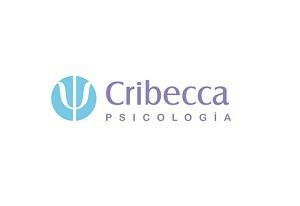What do psychologists do to treat OCD?
Obsessive-Compulsive Disorder (OCD) is one of the psychological disorders that most limits freedom and damages people's quality of life.
Fortunately, it is possible to manage its symptoms and learn behavior patterns that gradually fade this disorder until it does not cause significant problems. If you are interested in knowing how psychologists work when treating OCD, keep reading.
- Related article: "Obsessive-Compulsive Disorder (OCD): what is it and how does it manifest itself?"
What is OCD and what are its symptoms?
Obsessive-Compulsive Disorder is a psychological phenomenon described as a psychiatric syndrome in the diagnostic manuals used in Medicine and in Clinical and Health Psychology. It is characterized by loss of control in the face of intrusive thoughts and actions stereotypes that are very difficult to repress, and therefore have elements in common with anxiety disorders and with the tics.
Typically, the elements that allow identifying the presence of Obsessive-Compulsive Disorder in patients are two, as its name indicates: obsessions on one side and compulsions on the other.
Obsessions are fundamentally intrusive images or thoughts that arise in the person's consciousness "catching" its attentional focus, and generating a strongly negative emotional response, linked to the anxiety. These pieces of imagination can be, for example, the image of a large layer of germs invading our hands and eating them little by little, or a hole opening under our feet.
Compulsions are stereotyped actions that we feel the need to perform to make the obsession go away (for the time being) and make us feel relatively good again. These actions can be physical or mental. In addition, it is felt that these behaviors must be carried out very carefully so that they "count" as closure of the obsession, and always in the same order; if it is not done well, it starts over. Examples of common compulsions are:
- Wash your hands repeatedly and always in the same way.
- Clean a chair by passing a piece of paper through certain places and in a certain order.
- Scratching certain parts of the body, following a systematic pattern.
Impact on daily life

As a consequence of the symptoms of OCD, people who suffer from it waste a lot of time every day spending it doing compulsions, compromise their physical and mental health due to their exposure to very mechanical routines and stress, and their social life. Because, this is one of the usual reasons why many people come to Cribecca, our psychotherapy center in Seville; It is part of the psychological disorders with which psychotherapists have a lot of experience.
On the other hand, in many cases the sufferer also has other psychological disorders that overlap with this, given that the fact of feeling bad makes us prone to generating added problems that can go becoming chronic
- You may be interested: "What is anxiety: how to recognize it and what to do"
What psychologists do to treat OCD
What can be done from the psychologist's office to treat and combat the symptoms of Obsessive-Compulsive Disorder?
One of the most effective strategies is called Exposure and Response Prevention., which consists of dissociating the anxiety experienced because of the obsession from the performance of the compulsive behavior. That is, the patient is trained so that he can deal with that momentary discomfort, tolerating the experience without "surrendering" to the need to perform the compulsion.
In this way, the patient experiences how it is possible to endure anxiety without anything bad happening beyond of the anxiety itself, and begins to stop seeing the compulsion as an inevitable way out of that situation. As the treatment progresses under the supervision of the psychological professional in charge of the case, the obsession and compulsion stop reinforcing each other, and that causes the Obsessive-Compulsive Disorder to go away fading.
On the other hand, it is also often necessary to modify the irrational belief system of each patient. This is because, on many occasions, the habit of submitting to compulsions can lead people to fully or partially believe that something very bad will happen to them if they don't end the obsession through a ritual (the compulsion); this is an example of magical or superstitious thinking that both reinforces the existence of the disorder and arises from it.
Thus, in psychotherapy sessions, cognitive restructuring focused on the beliefs that feed and maintain OCD is also carried out. This consists of leading the patient to question these beliefs, to put them to the test and see to what extent they adhere to reality.
Of course, everything we have seen about the treatment of Obsessive-Compulsive Disorder is more complicated than what is summarized here. In reality, it is a process that requires the joint work of the psychologist and the patient, and the realization of exercises between sessions by the latter (following the instructions of the psychotherapist). The psychologist's job is not only to give instructions, but also to literally "train" the person. person to get rid of OCD little by little, through a transformation of habits and the way of think.
Bibliographic references:
- Kim, S.W.; Grant, J.E. (2001). Personality dimensions in pathological gambling disorder and obsessive–compulsive disorder. Psychiatry Research 104(3).
- Miller, C.H.; Dawson W.H. (2008). Scrupulosity disorder: An overview and introductory analysis. Journal of Anxiety Disorders 22 (6): p. 1042 - 1058.
- Subramaniam, M; Soh, P.; Vaingankar, J.A.; Picco, L.; Chong, S.A. (2013). Quality of life in obsessive-compulsive disorder: impact of the disorder and of treatment. CNS Drugs. 27 (5): p. 367 - 383.
- Whiteside, S.P.; Port, J.D.; Abramowitz, J. S. (2004). A meta–analysis of functional neuroimaging in obsessive–compulsive disorder. Psychiatry Research: Neuroimaging. 132 (1): p. 69 - 79.


